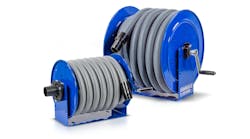This is Part Three of a three-part story. For Part One, click here. For Part Two, click here.
Engine overhauls are not for the faint hearted, both in terms of whether the parts and time will pay off for the shop and in if you have a skilled technician for the job. In Part One of this story, we discussed the factors a shop should consider when approaching an engine overhaul, including comparing signs of engine distress, such as knocking and increased coolant use, versus the status of the rest of the vehicle. Then in Part Two, we delved into the options a shop has for handling an overhaul, from an in-frame job to engine remanufacturing.
Now, the final piece of the engine-overhaul puzzle is making sure that once you've committed, you've got the right technician to do the job. And making sure you have that skilled pair of hands on staff necessitates a careful approach to training and equipping your techs.
Who’s going to do the overhaul?
If a fleet still determines that an in-frame overhaul is the most desirable option, it can minimize downtime by making sure a reputable service provider handles the procedure.
Michael Young, powertrain product marketing manager at Daimler Truck North America (DTNA), said it’s important to work with a rebuild provider that is within the service network for that particular brand of engine. “These rebuilds are complex and require special tools,” he said. “Also, working with a certified in-network service provider will usually help a fleet maximize the warranties.”
In the case of Detroit, a basic overhaul has a one-year warranty, a super overhaul has a one-year/100,000-mile with an option for a two-year/200,000-mile warranty, and a complete overhaul has a two-year/200,000-mile with an option for a three-year/300,000-mile warranty. The caveat is that all overhauls must be performed by an authorized Detroit service outlet.
In the case of Mack Trucks’ Re-Power program, a two-year parts warranty is included, although a three-year/350,000-mile warranty is offered when the overhaul kit is installed by a Mack dealer.
Up in Minnesota and Wisconsin, Blaine Brothers is an authorized dealer for CAT and Cummins engines. But they’ll work on just about anything that comes their way. That requires a serious commitment to tooling and training. When considering an independent shop to perform an overhaul, fleets should look for these types of credentials and capabilities.
Madich said Blaine Brothers always takes advantage of training opportunities offered by Cummins. To help fill in the blanks with the other makes and models their technicians touch, Blaine Brothers seeks out reputable third-party training providers. They’ve found a good one in Texas that they regularly send technicians to.
“The classes cover brands like Detroit and Paccar, and they usually last around four days,” said Jim Madich, engine service supervisor at Blaine Brothers. “They’re really popular and usually book full. So anytime there is an opening, we’ll send guys down there, depending on what the class is and what our training needs are in terms of make, model, and EPA year.”
Blaine Brothers identifies a few technicians at each of its four truck repair locations to become rebuild specialists. “It’s a very skilled job that you can’t just give to anybody,” said Jason Kendrick, director of service operations. “Those specialists are the techs who are sent to training classes.”
Read more: Shops find physical training aids effective to upskill technicians
Additionally, when Blaine Brothers hires a new technician who may have just finished up their schooling, they identify those who have an interest in becoming a rebuild specialist. “After a few months on the job, we can usually tell if someone has the potential to advance into more advanced work like an overhaul,” Madich added.
Those with potential are groomed on the job by current rebuild specialists. “They’re essentially training their replacements,” Kendrick said. When the time comes for those new technicians to step in to the role of specialist, they’ll start partaking in those external training sessions to stay at the forefront of knowledge.
Engine rebuild specialists also require some specialized tools that a typical “maintenance shop” likely won’t have.
“Some of these tools get pretty expensive, so it’s typically the shop that will buy them,” said Howard Durfee, assistant coordinator for the diesel technology and advanced diesel programs at WyoTech, a trade school in Laramie, Wyoming. Examples include cylinder liner pullers and tools to reinstall liners correctly; tools for liner holdouts to make sure they aren’t sitting too far in or out; and brand-specific tools for cam bearings, taking blocks out of frames, lifting cylinder heads off, and more.
As one of the premier diesel training centers in the country, WyoTech has invested in these types of specialty tools to help train the future generation of diesel technicians. Even though they’re located in a small, remote city, the reputation of their program helps draw students from all over the country. Durfee said class size ranges from 40-100 students. For select students, a portion of the 12-week advanced diesel curriculum includes rebuilding an engine for a local fleet.
With so much attention on new technology and diagnostics in recent years, Durfee said it’s encouraging to see that young, up-and-coming technicians are also eager to roll up their sleeves on the mechanical side of things. When an engine rebuild comes into the class, quite a few hands go up to participate.
“We generally like to have three students working on a rebuild,” Durfee explained. “We like to pick the more gung-ho students.
“They also have to meet certain requirements, like having at least near-perfect attendance, and need to be very detail-oriented,” he continued. “You cannot rush with a rebuild.”
Fleets shouldn’t rush with their decision to invest in a rebuild, either. Sometimes a remanned replacement engine is the best option, and sometimes investing in a brand-new truck will make the most sense. But if a fleet has a truck in the 500,000- to 700,000-mile range and is looking to squeeze a few more years of reliable service out of it, an overhaul can prove to be a good bet.




